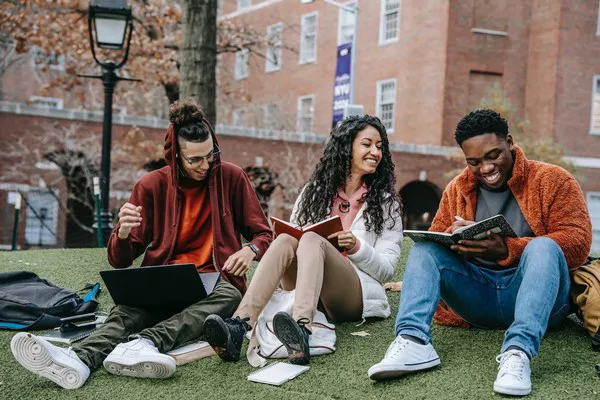Friendships are fundamental to our well-being, providing emotional support, companionship, and a sense of belonging. However, not all friendships are created equal. Recognizing the qualities that define a good friend can help you build and maintain meaningful relationships. As a psychologist, I have seen how healthy friendships contribute to mental and emotional health. In this article, we will explore 5 key signs of a good friend and how to foster these qualities in your own friendships.
1. Unconditional Support and Understanding
A good friend offers unwavering support and understanding, regardless of the circumstances. This support is not limited to moments of success but is equally present during challenging times. Here’s what this support typically looks like:
Emotional Availability: A good friend is someone who listens empathetically and offers comfort when you’re going through difficult times. They don’t dismiss your feelings or try to “fix” your problems but instead provide a listening ear and a shoulder to lean on.
Encouragement: A supportive friend celebrates your achievements and encourages you to pursue your goals. They offer positive reinforcement and motivate you to strive for success, while also helping you cope with setbacks and failures.
Nonjudgmental Attitude: True support involves accepting you as you are, without judgment or criticism. A good friend will respect your choices and offer constructive feedback only when it’s helpful and welcomed.
Reliability: Being there when you need them, whether it’s for a late-night chat or a last-minute favor, is a key sign of a good friend. Reliability builds trust and strengthens the bond between friends.
This kind of support is crucial because it fosters a sense of security and belonging. When you know you can count on a friend in any situation, it enhances your emotional resilience and overall well-being.
2. Honesty and Trustworthiness
Honesty and trustworthiness are foundational elements of a healthy friendship. A good friend is someone who values transparency and can be relied upon to keep your confidences. Here’s how these qualities manifest in a good friend:
Truthfulness: A good friend communicates honestly, even when the truth is difficult. They provide sincere feedback and are not afraid to address issues or concerns directly. This honesty helps build a strong foundation of trust and mutual respect.
Confidentiality: Trustworthiness involves respecting your privacy and keeping personal information confidential. A good friend does not share your secrets or private matters with others, ensuring that you can confide in them without fear of betrayal.
Dependability: Trustworthy friends follow through on their promises and commitments. They are reliable in their actions and words, which reinforces the trust you place in them. Knowing that you can depend on a friend builds a deeper sense of connection.
Integrity: A good friend demonstrates integrity by aligning their actions with their values. They act consistently and stand by their principles, which fosters trust and reliability in the friendship.
Honesty and trustworthiness are essential for a lasting and fulfilling friendship. They create a safe environment where both individuals feel valued and respected, allowing the relationship to thrive.
3. Mutual Respect and Equality
A good friendship is characterized by mutual respect and equality. This means that both individuals value each other’s opinions, boundaries, and contributions to the relationship. Here’s how mutual respect and equality are demonstrated:
Respect for Boundaries: A good friend understands and respects your personal boundaries, whether they are physical, emotional, or social. They do not pressure you to engage in activities you’re uncomfortable with and honor your need for space and time alone.
Equal Effort: In a healthy friendship, both parties contribute equally to the relationship. This includes making time for each other, initiating plans, and showing appreciation. An imbalance in effort can lead to feelings of resentment and dissatisfaction.
Valuing Opinions: A good friend values your opinions and perspectives, even when they differ from their own. They engage in open and respectful discussions, appreciating the diversity of thought that each person brings to the relationship.
Supportive Communication: Mutual respect is reflected in how friends communicate with each other. This involves speaking kindly, listening actively, and resolving conflicts constructively. Respectful communication strengthens the bond between friends and helps address misunderstandings.
Respect and equality are crucial for a balanced and harmonious friendship. They ensure that both individuals feel heard, valued, and equally invested in the relationship.
See Also: What Does a Normal Father-Daughter Relationship Look Like?
4. Empathy and Compassion
Empathy and compassion are key traits of a good friend. They involve understanding and sharing the feelings of another person, which fosters a deep emotional connection. Here’s how empathy and compassion are expressed in a friendship:
Active Listening: An empathetic friend listens attentively to your concerns and emotions without interrupting or minimizing your experiences. They validate your feelings and show genuine interest in what you have to say.
Emotional Support: Compassionate friends provide emotional support by expressing understanding and empathy during difficult times. They offer comfort and reassurance, helping you navigate your challenges with a sense of solidarity.
Kindness: Empathy is reflected in acts of kindness, such as offering a helping hand, providing encouragement, or simply being present. A compassionate friend goes out of their way to make you feel cared for and valued.
Nonjudgmental Attitude: Compassionate friends avoid judgment and criticism. They accept you for who you are, offering support without imposing their own values or expectations. This nonjudgmental attitude helps build trust and strengthens the friendship.
Empathy and compassion enhance the quality of a friendship by creating a nurturing and supportive environment. They allow friends to connect on a deeper emotional level and provide comfort during challenging times.
5. Shared Interests and Enjoyable Companionship
While not essential, shared interests and enjoyable companionship can greatly enhance a friendship. These aspects contribute to a sense of connection and mutual enjoyment in the relationship. Here’s how shared interests and enjoyable companionship are reflected in a good friendship:
Common Interests: Shared hobbies, activities, or passions can strengthen the bond between friends. Engaging in mutual interests provides opportunities for fun and meaningful experiences together, which helps build a stronger connection.
Positive Interaction: A good friend enjoys spending time with you and creates positive experiences together. Whether it’s through laughter, adventure, or simple activities, enjoyable interactions foster a sense of joy and fulfillment in the friendship.
Supportive Participation: Friends who share your interests are often more enthusiastic and supportive of your pursuits. They celebrate your achievements and participate in activities that matter to you, which enhances the overall satisfaction of the friendship.
Mutual Growth: Engaging in shared interests can lead to personal growth and learning. Friends who explore new activities together or challenge each other intellectually contribute to each other’s development, enriching the friendship.
Shared interests and enjoyable companionship add a layer of fun and satisfaction to a friendship. They create opportunities for positive interactions and contribute to a deeper sense of connection and fulfillment.
Building and Maintaining Good Friendships
Recognizing the signs of a good friend is just the first step. Building and maintaining healthy friendships requires effort and commitment from both parties. Here are some tips for nurturing good friendships:
Communicate Openly: Regular and open communication is key to maintaining a healthy friendship. Share your thoughts and feelings honestly, and encourage your friend to do the same.
Show Appreciation: Express gratitude for the positive aspects of your friendship. Acknowledge and appreciate your friend’s support, kindness, and contributions to the relationship.
Address Issues Constructively: If conflicts arise, address them promptly and constructively. Focus on finding solutions rather than placing blame, and work together to resolve misunderstandings.
Invest Time and Effort: Make time for your friends and prioritize your relationship. Invest effort in maintaining the connection and strengthening the bond through shared experiences and meaningful interactions.
Be Supportive: Continue to offer support and understanding, even when things are going well. A good friend is consistently there for their friend, providing encouragement and empathy through all of life’s ups and downs.
Conclusion
Good friendships are marked by a range of positive qualities that foster mutual respect, trust, and emotional connection. Understanding and recognizing the signs of a good friend can help you build and maintain meaningful relationships that contribute to your overall well-being.
Maintaining a good friendship requires effort, communication, and mutual respect. By nurturing these qualities, you can foster relationships that are supportive, rewarding, and enriching. Remember that friendships, like any relationship, evolve over time, and being adaptable and responsive to these changes is key to sustaining lasting connections.
Ultimately, the essence of a good friend lies in their ability to support, understand, and enrich your life while sharing in the journey of mutual growth and companionship.
Related topics:



























